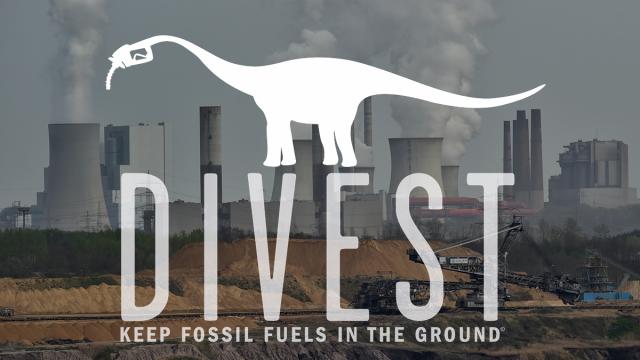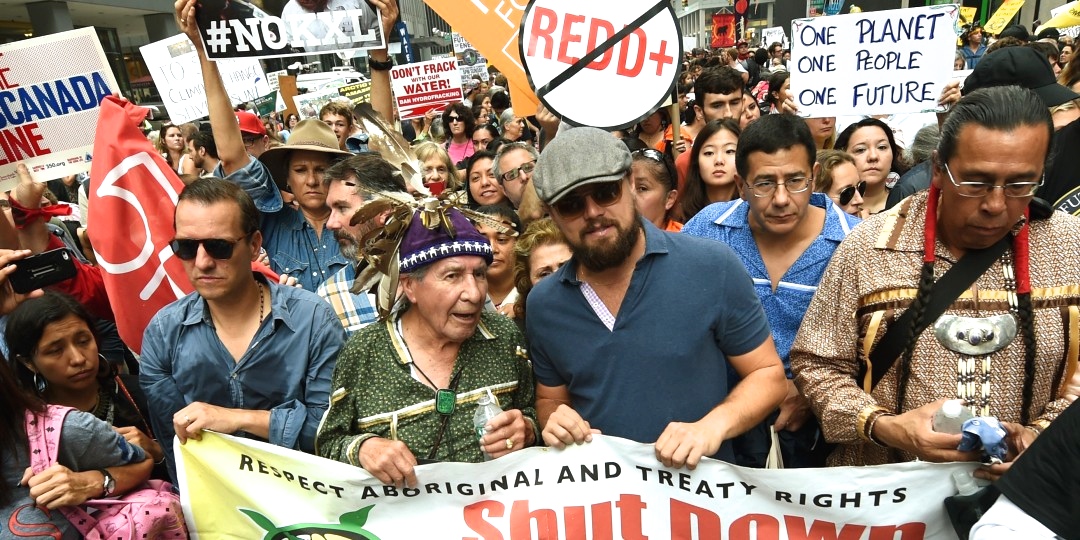
The global movement to divest from fossil fuels has mobilized billions of dollars in capital and engaged a broad segment of society to accelerate the just transition to a clean-energy economy. As of September 19, 2014, 181 institutions and local governments and 656 individuals representing over $50 billion in assets have pledged to divest from fossil fuels.
These institutions and individuals come from a diverse range of sectors and backgrounds, including universities, faith-based organizations, philanthropies, health-care providers, local governments, and NGOs. The movement to divest from fossil fuels and invest in clean alternatives has gained remarkable speed.
It was born in 2011 on just half a dozen college campuses where the students called on their administrations to divest endowments from coal and other fossil fuels. Today, a diverse group of students, philanthropies, and grassroots and environmental organizations from around the globe are driving the movement.
Since January 2014, the number of commitments by campuses, churches, cities, states, hospitals, pension funds, and other institutions – both in the United States and abroad – have more than doubled, from 74 to 181.
Since 17 foundations controlling nearly $1.8 billion committed to divest in January, the number of divesting philanthropic organizations has swelled to 71, representing $4.2 billion in assets. In addition, eleven leading environmental organizations have also pledged to divest, totaling over $725 million in assets.
The movement has also grown to include a diverse group of individuals. The inaugural cohort of individual pledges boasts over $2.5 billion in assets.
This report provides additional detail about the scope and scale of fossil fuel divestment commitments made to date. It was prepared by Arabella Advisors, working with a team of leaders from the global fossil fuel divestment movement, to provide additional detail about the scope and scale of divestment commitments made.
Arabella compiled the data, conducted the technical analysis, and drafted the body of the report; judgments about standards relating to recognition or inclusion in the report of public divestment commitments were made by a committee of movement leaders including Divest-Invest Philanthropy, Divest-Invest Individual, 350.org, the Wallace Global Fund, and the California Student Sustainability Coalition.
*
Meanwhile, Bryce Covert reports for Think Progress that the ties between the economy and the climate — both in the way that the current system is hampering progress in addressing the issue, and how worsening change will hurt the economy — are hard to dispute:
It may sound like it’ll cost a lot to fight climate change. But it may cost more to stay on our current course of taking little action. The cost of failing to adapt could be a staggering $1,240 trillion, compared to $890 trillion if we make changes. The U.S. director of the Office of Management and Budget has estimated that it will cost the United States billions of dollars if we fail to act, given the cost of increasingly intense damage from storms, wildfires, and drought.
Climate change will also hamper important pieces of our economic system. If greenhouse gas emissions continue on their current path, we’ll experience a 50 percent drop in labor productivity by the end of the century thanks to heat stress. The cost of such a decrease could be more than that of all other climate change costs combined.
A changing climate will also devastate an important sector of the economy: agriculture. With increasing droughts, heat waves, and changing precipitation patterns, it’s likely that we’ll see a 40 percent crop reduction by 2100 if things continue as they are. Crop failures that normally come every 20 years would occur more than once every two years. And the pain would be felt more by the poorest areas, who would experience costs as high as $900 per person each year. Climate change will also spike the costs of energy, premature deaths, and crime.
All told, damage from 3 degrees Celsius of warming would reduce global GDP by 0.9 percent, which would cost the United States $150 billion in economic output each year. Output is likely to be reduced by 1.5 to 1.9 percent by climate change by the end of the century but it could be as much as nearly 10 percent.
The costs of changing course, however, are not likely to be overwhelming and could even spur economic growth.
Feeling the Hurt on Wall Street
Activists may be targeting Wall Street as a cause of the system that is heating our planet, but the financial sector won’t come out unscathed if we fail to act. The International Finance Corporation (IFC), part of the World Bank, warned the sector that “Aggressive new climate policies [are] increasingly likely,” which will have a big impact on anyone heavily invested in “carbon intensive portfolios,” or in other words, in coal, utility, and railroad companies.
Part of the problem is, as mentioned above, that companies valued on their reserves of oil and gas won’t be worth nearly as much if they can no longer extract them. Meanwhile, the IFC says, “Renewables and carbon capture and storage [are] attracting major investment with enormous growth opportunities.”
Investors themselves are nervous about these implications. Last year, 110 shareholder resolutions about climate change were filed at 94 different companies from investors who manage funds worth more than $500 billion in assets, asking for things like transparency about how much risk the companies are exposed to thanks to climate change and whether energy companies would be unable to exploit their reserves.
That’s up from just 30 filed ten years ago. Other investors are calling for aggressive climate action — more than 340 around the globe representing more than $24 trillion released a statement last week saying that government leaders have to take action on carbon pricing, the largest such move to date.
A Rigged System
Flood Wall Street activists want to “Flood, blockade, sit-in, and shut down the institutions that are profiting from the climate crisis.” Certainly big oil and gas companies are profiting off of inaction on the issue. The five largest — BP, Chevron, ConocoPhillips, Exxon Mobil, and Royal Dutch Shell — made $48.6 billion in profits combined in the first half of this year and $93 billion last year, or $177,000 each minute.
That’s left them with $69.3 billion in cash reserves, and a good portion of that money goes toward influence. Oil and gas companies have spent more than $67 million lobbying American politicians this year so far, with nearly a third coming from the big five alone. That political power has helped them hold onto $2.4 billion in tax breaks every year, which means Exxon Mobil, for example, pays an average effective federal tax rate of between 14 and 18 percent, compared to the on-paper corporate tax rate of 40 percent.
It also helps steer federal money toward the industry instead of toward renewable energy: the oil and gas industry received 58 percent of energy sector funding between 1950 and 2010 and gets an average of $4.86 billion in subsidies each year while renewables get $370 million.
Without more investment in renewable energy and less oil and gas production, climate change could breach the catastrophic threshold of global temperatures rising more than 2 degrees Celsius. The International Energy Agency has estimated that investment in renewables around the world would have to reach $1 trillion every year between now and 2050 to ward that off, but it was just $254 billion in 2013.
Meanwhile, about $22 trillion of the world’s oil, coal, and natural gas reserves would have to stay in the ground to avoid reaching that level of warming, reserves that are currently propping up many oil and gas companies’ valuations.
3 WAYS TO SHOW YOUR SUPPORT
- Log in to post comments















